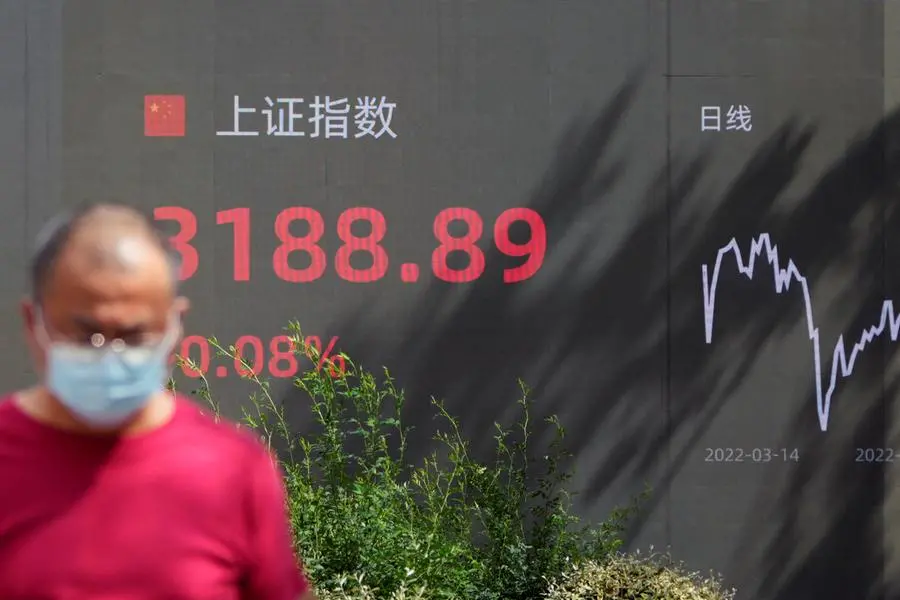PHOTO
China's blue-chip stocks slumped to nearly five-year lows on Tuesday amid worries about the country's growth, with talks of a possible cut to China's sovereign ratings by Moody's denting sentiment during the session.
Foreign investors sold the most shares in one month and a half, while market participants cautiously awaited fresh economic indicators and policy meetings for more clues.
After the domestic market closed, ratings agency Moody's announced an outlook cut on China's government credit ratings to negative from stable.
The blue-chip CSI 300 Index slumped 1.9% to close at the lowest level since February 2019, while Hong Kong's Hang Seng Index also lost 1.9% to a one-year trough.
The outlook change reflected the increased risks related to structurally and persistently lower medium-term economic growth and the ongoing downsizing of the property sector, Moody's said.
The market's weakness has fully reflected the risks in the economy and the reaction to the outlook change is overdone, said Xia Chun, chief economist of Forthright Holdings Co.
China's Finance Ministry said it was disappointed by Moody's downgrade, adding that the economy will maintain its rebound and positive trend. It added property and local government risks are controllable.
"Market confidence is still fragile" due to cyclical issues, said Minyue Liu, investment specialist, Asian Equities & Greater China Equities at BNP Paribas Asset Management.
A private-sector survey showed that China's services activity expanded at a quicker pace in November. However, an official survey last week showed the sector unexpectedly contracted for the first time since December last year, prompting calls for more stimulus measures.
With the Shanghai Composite Index dropping below the key 3,000-point mark, BNP's Liu said there could be some panic in the market.
China and broader emerging Asia market stocks were among the most net sold regions by global hedge funds in November, Goldman Sachs said.
Foreign investors sold a net 7.5 billion yuan ($1.05 billion) of Chinese shares on Tuesday, the biggest daily outflow since Oct. 19.
Most sectors declined, with real estate developers , semiconductors and computers down between 2.9% and 3.9%. Hong Kong-listed tech giants slumped 2.1%.
Market participants are awaiting more economic data later in the week and the upcoming Politburo meeting and the annual Central Economic Work Conference (CEWC), which usually discuss policy plans and the outlook for China.
UBS economists expect modest but explicit fiscal support to be announced during the CEWC.
($1 = 7.1419 Chinese yuan renminbi) (Reporting by Shanghai Newsroom; Editing by Mrigank Dhaniwala and Sohini Goswami)





















